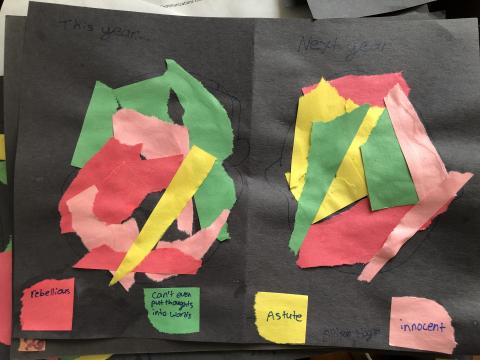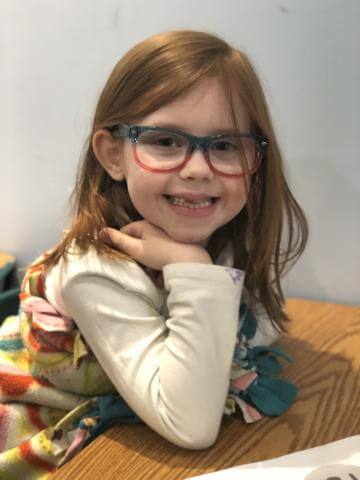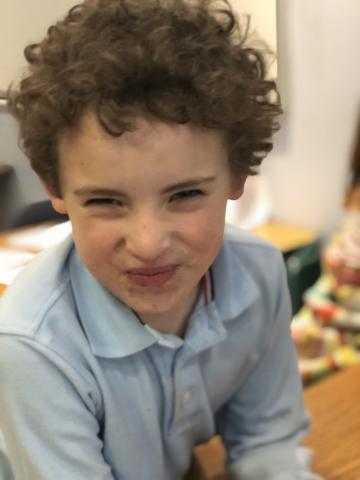
This week we stepped into the shoes of the four children at the Pesach (Passover) seder. Often these four children are described as wise, wicked, simple, and unable to ask a question. We unpacked all of those qualities and looked at how we can be like any of these four kiddos at any given time. Read on to see what your multifaceted children have to say.

(This kiddo is making a wise face)
What does it mean to be wise?
- Being smart.
- Asking lots of questions.
- They tell me lots of things they already know. And use 85,000 words in one sentence.
- Come up with creative answers to questions.
- Make noises that remind me of birds during science.
What are moments when you are wise?
- When I ask lots of really good questions.
- When I finished my math test early and got extra time in gym.
- When I make a random creation.
What are some wise questions?
- Why do we tell “One Crazy Time” at the seder?
- What is kiddush all about?
- Why do we wash our hands on Shabbat and also on Pesach?
- Why do we dip herbs?
- Why do we break the middle matzah? Why are there three matzot?
- Why do we have to hunt to find the afikomen?
- What is this story all about?

(This kiddo is making a rasha face)
The word rasha is often translated to mean wicked, but there are lots of other translations of that word. We gave kiddos those other translations, and we discussed what those translations mean to us! Here are some of them:
- Rebellious – someone who protests.
- Difficult – something really hard, someone annoying.
- Chutzpadik (Yiddish) – someone who does something that people wouldn’t normally do.
- Wicked – bad, evil, or mean.
- Problematic – someone who causes difficulty.
- Vilde chaya (Yiddish for wild animal) – destructive.
- Alienated – excluded, on the outside.
Which of those understandings best fits the child described in the text?
- Wicked, because they sound strict and mean.
- Difficult, because it sounds like they’re yelling at other people.
- Problematic, because they’re causing difficulty at the seder.
- Rebellious, because they’re fighting for and about something they believe in. They think this whole seder thing is weird.
What are some rasha questions
- What even IS “One Crazy Time?”
- I don’t want to wash my hands! Why do we have to do this?
- I don’t like vegetables, why do I have to eat these vegetables?!
- Why does someone get a prize if they find the afikomen?
- Why do we have to tell this giant story?
- Why can’t we just eat?
- Why do we help each other wash, I’m a big kid!
- I don’t believe in God, how does this make any sense?
How might a wise child become rasha?
- Bad grades made them angry.
- Nothing going their way.
- Amnesia.
- Competitive about learning.
What are some Simple questions?
- Can I drink that juice now?
- How do you wash your hands?
- I love cucumber, can I dip all the cucumbers into the salt water and eat it?
- Do you dip matzah?
- I love “One Crazy Time” but I don’t know how to do it, can you show me?
- Will the broken matzah get mad at us?
What makes questions hard to ask?
- Sometimes the teacher can’t answer because too many other kids have questions.
- Other people are better at stuff that I am so they don’t call on me.
- They are a baby and can’t talk yet.
Which kid are you like today?
- Today I am wise because I answered questions at school.
- Rebellious because I hate Mondays.
- Wise because I did well on a test.
- Cannot ask because it’s hard to find the words.
- Cannot ask because I just can’t think today.
Throughout our discussions this week we found that there are qualities of all four of these kiddos in all of us, sometimes at the same time! Stay tuned next week as we wade through some terrible, no good, very bad plagues!

